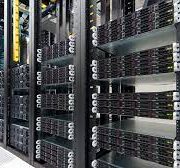In today’s rapidly evolving digital landscape, businesses face the challenge of accommodating increasing demands on their IT infrastructure. As data volumes grow, applications become more complex, and user bases expand, the need for scalable servers becomes imperative. Scalability refers to a server’s ability to handle growing workloads and adapt to changing requirements without sacrificing performance. When purchasing servers, considering scalability is a strategic move to future-proof your IT infrastructure. In this article, we will explore the key factors to look for when evaluating servers to ensure they can accommodate your organization’s future growth.
1. Evaluate Your Current and Future Workloads
Before diving into server options, start by evaluating your organization’s current and projected workloads. Analyze data traffic, application performance, and resource utilization patterns. Assess how these factors are likely to evolve over time as your business grows. Understanding your workload requirements is crucial to choosing a server that can scale accordingly.
2. Flexible Hardware Configuration
Opt for servers that offer flexible hardware configurations. Look for models that support easy upgrades of key components such as processors, memory, and storage. Scalable hardware allows you to expand your server’s capacity without replacing the entire system, saving you time and money as your needs grow.
3. Virtualization Capabilities
Virtualization enables the creation of multiple virtual machines (VMs) on a single physical server. This technology is an excellent way to achieve scalability, as it allows you to allocate resources dynamically based on workload demands. Servers with strong virtualization support provide a cost-effective and efficient solution for future growth.
4. Redundant Components and High Availability
Scalability should not come at the expense of reliability. Look for servers with redundant components such as power supplies, cooling systems, and storage options. Redundancy ensures that even if a component fails, the server can continue operating without disruption. High availability features are vital for mission-critical applications and services.
5. Network Connectivity and Bandwidth
As your organization expands, network demands will also increase. Choose servers with multiple high-speed network interfaces to support growing data transfer requirements. Sufficient network bandwidth ensures smooth communication between servers and enables efficient data access.
6. Scalable Storage Solutions
Data storage needs tend to grow rapidly, especially with the proliferation of big data and multimedia content. Servers should support scalable storage solutions like RAID arrays or expandable drive bays. Consider servers with hot-swappable drive bays to add storage capacity without downtime.
7. Cloud Integration
Hybrid cloud solutions offer excellent scalability options for businesses. Consider servers that integrate seamlessly with cloud services. Cloud-based resources can be dynamically allocated or de-allocated based on demand, providing cost-effective scalability during peak periods.
8. Management Tools for Scalability
Effective server management tools are crucial for monitoring and optimizing resource usage as your server infrastructure expands. Look for servers that provide comprehensive management software or integrate with popular server management platforms.
9. Power Efficiency
Scalable servers should be power-efficient, especially as you expand your infrastructure. Energy-efficient servers not only reduce operational costs but also contribute to environmental sustainability.
10. Vendor Support and Roadmap
Choose reputable server vendors known for their commitment to long-term support and innovation. Consider the vendor’s product roadmap and how they plan to keep their servers up-to-date with the latest technologies and scalability features.
Conclusion
Scalability is a key consideration when purchasing servers to accommodate your organization’s future growth. By evaluating your current and projected workloads, opting for flexible hardware configurations, embracing virtualization, and ensuring redundant components, you can select servers that can scale effortlessly with your needs. Scalable storage solutions, network connectivity, and cloud integration further enhance your ability to accommodate growth efficiently. Efficient server management tools and power efficiency are additional factors to look for. Partnering with reputable vendors that offer strong support and a clear product roadmap ensures a future-proof investment in your IT infrastructure. By prioritizing scalability during the server purchasing process, you can build a resilient and adaptable IT foundation that supports your organization’s growth and success in the dynamic digital landscape.





















Comments